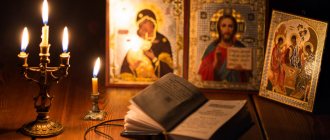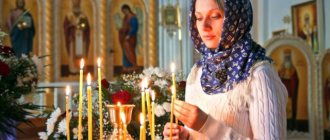It all starts with prayer
—What is prayer, what is its role for a person and in church life?
— Prayer is an integral part of any religious culture. But this can be approached from different angles. I like best the definition of Archimandrite Emilian, abbot of the Simonopetra monastery on Mount Athos. In one of his sermons, he says that prayer is stretching the mind towards God, and through this stretching the whole person. This is an activity whose purpose is to reorganize a person’s inner world. Emilian compares prayer to a sling. In prayer, the human mind stretches and shoots straight towards God. And in this shot the person becomes different. Profound changes occur in the attitude of the human “I” to the world, to oneself, to God. This is the most powerful tool for reorienting a person.
— What does reorientation mean?
— In a normal state, we are busy with ourselves, with our problems and experiences. When a person begins to pray, the object of prayer inevitably appears, which he himself is not. And this is already a lot. This takes a person beyond his huge “I”, which filled the entire universe. At this moment, a person subconsciously understands that God is not me, but someone who objectively exists outside of my consciousness. It's something that I can't put in my pocket and say it's my property. With real prayer to God, the unfolding of the human personality into its normal state from the state of egoistic magnetism begins, when everything that a person does inevitably returns to himself. This is why prayer is always difficult. Even saints forced themselves to pray until the end of their days. For many, the Church’s call to work in prayer seems strange, but it is inevitable. Just as an athlete must force himself to work during training, otherwise what kind of athlete is he, a Christian puts effort into corkscrewing himself into prayer, even when he doesn’t feel like it. And that's completely normal. If this is not there, everything else will not be either.
- Do you need to force yourself to pray?
- Certainly. Prayer is what causes the natural rebellion of fallen human nature, because something claims to destroy the absolute dictatorship of human self-sufficiency.
There is also prayer without words - prayer with aspiration to God
Saint Theophan the Recluse: “You can pray without standing in prayer. Every lifting of the mind and heart to God is real prayer. If you do this between tasks, then pray. I remember that Basil the Great solves the question of how the Apostles could pray unceasingly: in all their deeds they thought about God and lived in unceasing devotion to God. This mood of spirit was their unceasing prayer. Here's an example for you. I think I already wrote to you that you cannot demand the same from active people, to whom you belong, as from sedentary people. Their main concern should be not to allow wrong feelings when doing things, and to try in every possible way to dedicate them all to God. This dedication will turn deeds into prayer. It is written that the blood of Abel cries out to God. So deeds dedicated to God cry out to Him. One old man, when something edible was brought to him from someone... said: how bad it smells..., but what was brought was very good in content. When they asked him: how is this possible? He explained that it was not sent with good feelings and out of bad feelings. Thus, every deed is anointed with the feelings with which it is done. And those who have purified feelings feel it. It turns out that just as good flowers emanate a good smell, so also from deeds done in a good manner, their incense emanates, and grief rises, like incense from a censer. Here’s another prayer.”
How to pray correctly
— Everything here is very individual. One thing is obvious - there must be a regime. A person who waits for the time to come when he will be freed from worldly cares, and the blessed charism of unceasing prayer will visit him - such a person will never pray. Therefore, there is a certain rule for morning and evening prayers, prayers associated with divine services. The most important thing a person should learn to do is to visit church weekly during the Divine Liturgy. The most correct prayer is the prayer of thanksgiving, the building of the Church as a community of people around Christ. This is the hardest thing. Many people are ready to pray at home, but going to church regularly is difficult. All parishioners can be clearly divided into two categories: those who go to church weekly, and those who go to church when their souls lie down. These are two completely different categories of people in their understanding of faith. When a person comes to church, he verifies the correctness of his inner state by the spirit by which the Church lives. It’s as if it dips itself, like a cucumber, into the brine and comes out as a lightly salted cucumber with a certain taste and smell. Otherwise, it can sit in the refrigerator for a long time and not even go rotten, but it will not have that aroma, that taste. This is the first and most important thing.
Secondly, I support that each person’s prayer rule should be individual, taking into account the circumstances of his life. It's one thing when a person doesn't work anywhere. It’s another matter when a person is busy in production. The third is a mother with many children, who has seven shops. Fourth, a person of a creative profession who does what he wants and when he wants. These circumstances should be discussed with the confessor, who determines the scope of the prayer rule.
The prayer rule is daily scales, which, if you don’t play them, your fingers will atrophy, and you won’t be able to play anything in class, let alone at a concert.
-What are the rules?
— Firstly, prayer is performed in front of the holy image, in front of the icon. That’s right, when this image is close to a person, it causes certain experiences. This is a kind of key to talking with God. It’s bad when a person has to force himself to look at an image because it is foreign to him. The image should not be alien. Unlike Catholic mystical spiritual practice, Orthodoxy insists on the absence of any kind of fantasy during prayer. Prayer with closed eyes is not encouraged. The mind cannot tolerate emptiness. We fix our gaze on the image of the icon, and this is the space in front of which we pray. The thought should not wander. You need to focus your consciousness in front of this image.
The next rule is extreme concentration on the words of prayer. The mind should move away from any memories or thoughts. He must, as Schema-Archimandrite Emilian writes, reach out to God in prayer so that only the words of prayer structure the human soul towards God.
In addition, it is desirable and correct to say prayer out loud. When prayer is said out loud, it uses not only our speech receptors, but also our hearing. It is more difficult to be distracted from such a prayer than when you do it silently. Mental prayer is done silently, but you can talk about it when a person already has a certain skill and can be collected for a long time and not run away with his eyes.
And one more requirement of prayer is the absence of artificial heating of emotions. Emotions here are not an end in themselves. No ecstasy. We do our work in relation to God. I remember an episode from the life story of one of the Valaam ascetics. When he really wanted to pray, he put down his rosary, went into the yard, chopped wood, and attended to various everyday concerns. And when he was ready to do anything but pray, then he took his rosary and prayed. He explained it this way: when I pray and receive spiritual consolation from it, I can very easily mistake this consolation for God and find myself in a state of delusion - instead of being extremely open to the action of Divine grace, you simply slam shut. You turn out to be self-sufficient - that’s all. This will be the same spiritual dead end that many fathers warned about. Why is the warming up of any kind of sensuality in prayer categorically cut off? Why do people read monotonously in church? Why does even partes singing* in church sound more modest than opera singing? Because in prayer you need to open up not to emotions, but to completely different experiences. When I get to the Greek service and they start singing, I almost physically feel like they took me by the scruff of the neck, gave me a kick, and now I’m already flying. And you understand that you are flying not because you are so good and your wings are trained, but because this temple element takes you and carries you away. There is no sensuality there. There is existence - a deep experience of a person’s standing before God, and everything sensual is ours, it comes somewhere on the side.
What is unceasing prayer?
The commandment about unceasing prayer is given by the Apostle along with the path to it. This is the way. “Rejoice always, pray without ceasing, give thanks in everything” (1 Thess. 5:16-18).
That is, the root of constant prayer is gratitude to God for everything. Gratitude is the reason for such prayer and such a heartfelt mood. Then a person wants to turn everything that happens to him into praise to the Lord and Creator.
How to achieve gratitude? Summarizing the experience of the fathers, we can say that this requires: Frequent communion, keeping oneself from evil and trust in God.
Man suffers on earth because he doesn’t really trust God and believes that he could rule the world much better. Of course, if he is a Christian, he will not say this out loud, but the mood of his heart will be exactly like that. Trust is not given just like that, but almost always through heroism. What can help a person here?
Participle. Ultimately, grace is the heart of every gift. Without grace it is impossible to become what the Lord intended us to be. As the heart is cleansed and God infuses it, He Himself will be the basis of our trust, although this takes time, because cleansing is never given quickly.
Prayer for the granting of trust. One famous elder advised me in such a case to say: “Lord, I entrust myself to You.”
No matter how difficult it may be, enduring pain will only make us love what we love even more. And God knows the time when trouble will be replaced by joy. His job is to give everything an unexpected turn and crown goodness with a good ending, and ours is to be faithful to the truth not only when we are prosperous and well-fed. And so each of us will do our part, and joy will come, which the Lord wants to give us no less than we expect its arrival.
Over all the centuries, the Lord has never failed those waiting for Him, but He always wanted us to believe this even before deliverance sanctifies and rejoices our souls.
Reflections on the Evangelical Christ. In a moment of disbelief, it’s good to think about what God is like and how he treats me. It helps here to simply look at the icon of Christ. Then the soul feels that such a God cannot deceive.
Good deeds. They help a person believe that goodness exists. As a publican, turning to God, he knew from experience that mercy exists, because he sometimes had mercy on his debtors. Likewise, one who does good understands more easily that one can entrust one’s soul and one’s life to a good person.
Reading fairy tales. Of all the genres, the fairy tale most conveys the high Christian sense of the world as a whole, where neither good nor suffering can be in vain. It reveals that the world exists only according to spiritual laws, and therefore the sinner perishes from evil, and the righteous receives blessing. A fairy tale assures a person of the certainty of a good end for all good things, and helps to see faith in all its fullness and power, rooted in eternity and beautiful.
I know a case when one of the Ukrainian bishops brought Clive Lewis’s “The Chronicles of Narnia” to a sick monk. And the monk, having read the book, said: “That I have now begun to understand God better.”
Other people have told me similar things. Thus, one kind girl survived many difficult events in her life, as she herself said, thanks to Lewis's Chronicles of Narnia and my Saga of Ancient Hope. Both of these books strengthened her when she was scared and gave her strength to hope. The books were like a message from heaven for her that the Lord would not abandon His children. Such is the power of a fairy tale and everyone alive can experience it.
Wrong Prayer: Danger to the Soul
There is a rather dangerous condition called “ spiritual prelest ”. This is described in detail in the book of Nikodim Svyatogorets “Invisible Warfare”. This is when demons drag a person into pride during prayer, dooming him to eternal torment. They induce various states on him that have a detrimental effect on his soul. Demons can inspire a person praying that he already sees God, saints, angels, and the person will become proud and perish in soul.
Various glows from icons, voices and visions cannot be taken as truth. I must tell myself that I am unworthy of such visions due to many sins. And more often you need to cross yourself in prayer .
There should be no feelings, no thoughts, no sensations during prayer! Even if they seem sublime to a person, similar to Grace. I have to tell myself that I am unworthy of Grace. This will be safer for the soul.
From these “sublime” sensations, a person falls into pride, thinking that Grace has already come to him, and stops praying. There have been cases when people fell into spiritual delusion and then went crazy, ending their lives in a psychiatric hospital.
- You also cannot hastily pronounce the words of prayer without thinking about it, without understanding what you are talking about. This is an image of prayer that generates the wrath of God. Even if we speak to a person so quickly without understanding anything, the person will not understand and will be offended. Saint Paisios said that by praying mindlessly, a person seems to be saying to God: “Hello, how are you? What's new?"
- You also cannot represent anything during prayer : neither God, nor an icon, nor the Most Holy Theotokos. This can also lead to charm.
- During prayer, one must bow and venerate icons..
Prayer in the Spirit
Praying in the Spirit is an essential part of God's word and is spoken of three times in the Bible. This means that real prayer must come not only from a person’s mind, but also from his spirit. It should be understood that the components of the mind are thinking, emotions, will, and the ability to make the right decisions. The spirit comes to life only when a believer sincerely comes to God, repenting of all his sins.
To pray in the Spirit, you should use the following address:
“Heavenly King, the Most High, the Comforter of man, the Spirit of truth, who is everywhere and fills everything with His presence, the Treasure of human blessings and the Giver of life, come and dwell in us, give us the opportunity to be cleansed from all sin, and save our souls. Holy God, Holy Mighty, Holy Immortal, have mercy on us.”
In this prayer, the believer calls on the Holy Spirit, the third person of the Holy Trinity. He reigns over everything and owns the souls of men. He is the Comforter, since only he is able to console a person in grief and support him. The Holy Spirit teaches only the truth, so you can trust him. It was the Holy Spirit who descended on the Apostles and comforted them in their separation from the Lord. He moved into them and began to guide them through life.
Why does a person who prays need a mentor?
Prayer introduces a person into the reality of the spiritual world. The initial insensitivity to the divine is replaced by a sense of the presence of God. Miracles begin to happen, including prayers being fulfilled. A person gains a new, previously unprecedented experience. But who will monitor the quality of this experience? Who can help you distinguish between blessed experiences and frayed nerves? Undoubtedly, this can only be done by one who himself has the experience of grace, and therefore will help the one who entreats. This is a spiritual mentor, one of whose tasks is to monitor the correctness of the experience received by his student.
Elder Sophrony Sakharov rightly writes that even if the heart does not doubt that it has felt and experienced God, if a person leads a correct spiritual life, then he will not rest until he finds approval from someone who has already had a similar experience. After all, grace does not lead to pride, but to humility. And, on the contrary, humility leads to grace. A mentor helps you navigate the path to both.
The best dialogue with God
⊗ In esotericism, prayer and meditation are closely intertwined with each other. Communicating with God, a person becomes spiritually enriched and develops as a person. James Van Praeg very accurately described the connection between prayer and meditation: “If you want to know your true purpose, you want to understand how to become a loving person, how to find the strength to cope with a difficult situation, my answer is to meditate. The difference between prayer and meditation is that when a person prays, he asks for something, and when he meditates, he listens for an answer.
Orthodox understanding of prayer
Since the creation of the world, man has needed communication with God. What is prayer? How to pray correctly? Are prayer and magic spell the same thing? We'll talk about this in today's article.
Prayer is a conversation between a person and God, the Mother of God or the saints. This is a verbal expression of innermost feelings, hopes, gratitude, requests. Moreover, it is the cumulative living experience of many generations of Christians in communication with God.
Orthodox church - place of prayer
Saint Ignatius (Brianchaninov) speaks about prayer like this:
“Prayer is the mother and head of all virtues, as a means and state of communication between a person and God. She borrows virtues from the source of blessings - God, and assimilates them to the person who, through prayer, tries to remain in communion with God. The path to God is prayer.”











